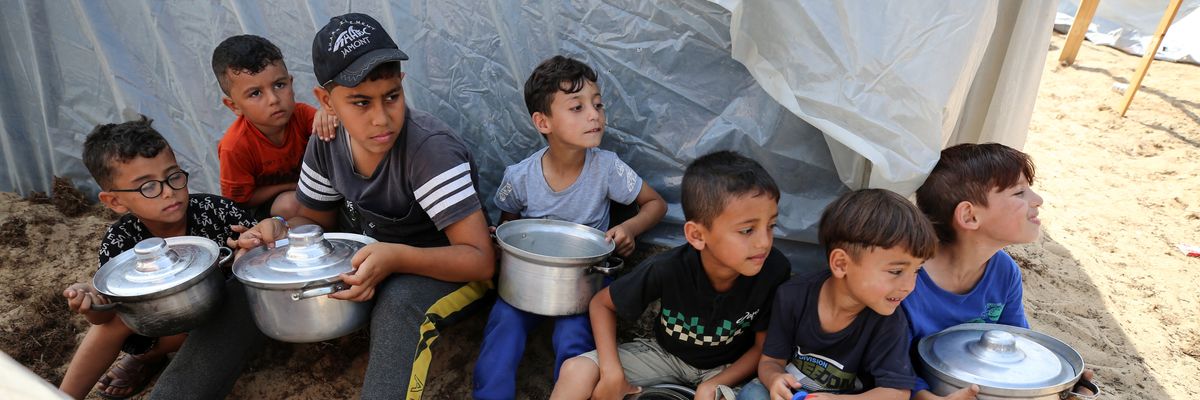The humanitarian group Oxfam International on Wednesday accused
Israel of "using starvation as a weapon of war" in the besieged
Gaza Strip, where hunger and thirst are
growing rapidly as just a trickle of aid has been allowed to enter the territory amid the Israeli military's relentless bombing campaign.
Citing United Nations data, Oxfam said in a statement that just 2% of the food that would have been delivered to Gaza prior to Israel's latest assault has been able to enter the strip since October 9, when the Israeli government announced a total blockade of the strip.
International law prohibits the use of starvation as a method of warfare.
In recent days, Israel has allowed several truck convoys carrying food, drinking water, and medical supplies to reach southern Gaza through the Egyptian border, but U.N. officials said that's nowhere near enough to meet the growing needs of Gazans, more than a million of whom have been displaced by Israeli airstrikes.
"The aid which resumed from Egypt over the weekend is a mere drop in the ocean of what is needed," Jeremy Laurence, spokesperson for the office of the U.N. High Commissioner for Human Rights, said Tuesday.
Oxfam noted Wednesday that "despite 62 trucks of aid being allowed to enter southern Gaza via the Rafah crossing since the weekend, only 30 contained food and in some cases, not exclusively so."
"This amounts to just one truck every three hours and 12 minutes since Saturday," the group said.
Sally Abi Khalil, Oxfam's regional Middle East director, said in a statement that the situation in Gaza "is nothing short of horrific."
"Where is humanity?" she asked. "Millions of civilians are being collectively punished in full view of the world, there can be no justification for using starvation as a weapon of war. World leaders cannot continue to sit back and watch, they have an obligation to act and to act now."
The United Nations estimates that more than 1.6 million people in Gaza—roughly 70% of the enclave's population—are in dire need of humanitarian assistance. Brian Lander, deputy head of emergencies at the World Food Program, toldReuters earlier this week that around 465 trucks of aid per day are necessary to help desperate Gazans who have resorted to drinking sewage-contaminated water and frequently skipping meals.
At best, according to Lander, 20 trucks of aid are reaching Gaza each day.
"Every day the situation worsens... How much more are Gazans expected to endure?"
Oxfam said Wednesday that while some food items such as flour, oil, and sugar are stocked in intact Gaza warehouses, "many of them are located in Gaza City," making it "physically impossible to deliver items due to the lack of fuel, damaged roads, and risks from airstrikes."
Israel has been accused of bombing Gaza bakeries, where people have lined up in recent days to buy bread—sometimes waiting for hours just to get a loaf.
"The electricity blackout has also disrupted food supplies by affecting refrigeration, crop irrigation, and crop incubation devices," the group said. "Over 15,000 farmers have lost their crop production and 10,000 livestock breeders have little access to fodder, with many having lost their animals."
Oxfam implored the United Nations and U.N. member states to "prevent the situation from deteriorating even further" by backing an immediate cease-fire and allowing "unfettered, equitable access to the entire Gaza Strip for humanitarian aid."
"Every day the situation worsens," said Abi Khalil. "Children are experiencing severe trauma from the constant bombardment, their drinking water is polluted or rationed and soon families may not be able to feed them too. How much more are Gazans expected to endure?"

